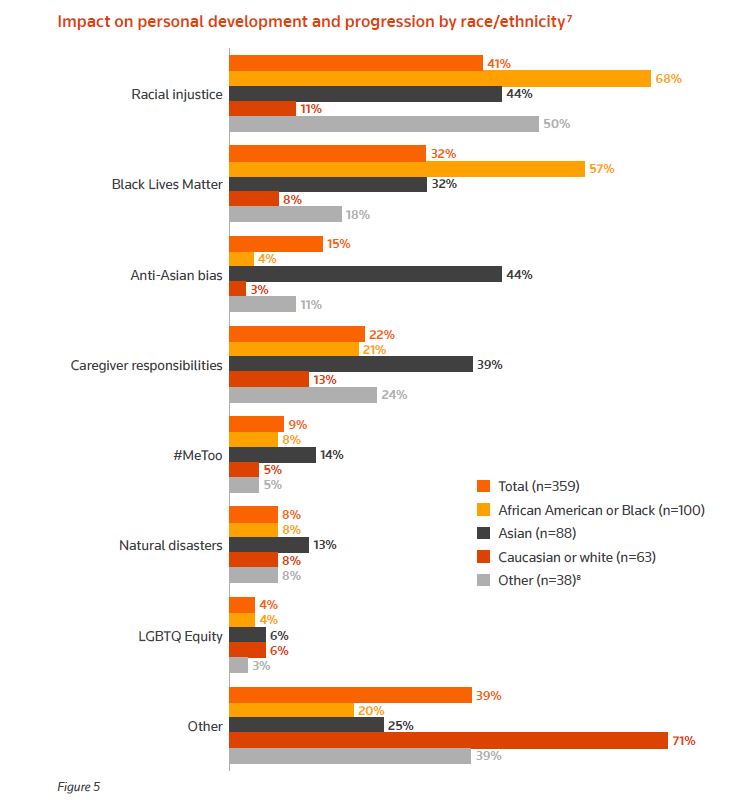In a new white paper, we take an in-depth look at the impact of the pandemic on the careers of lawyers from underrepresented communities
By any measure, the global pandemic brought on by COVID-19 has had a devastating impact on working professionals from marginalized communities. Women in senior management, Black women, and working mothers (who perform the bulk of the childcare, remote learning, and domestic tasks) were the communities that experienced the biggest challenges, according to McKinsey & Co. These trends appear to be consistent for lawyers as well.
As the scientific community grapples with the long-term ramifications of the pandemic’s global health impact, the legal industry and other businesses have only began to understand its potential immediate and long-term impact on the careers of attorneys. Couple this with the negligible progress the legal industry has made over the past decade towards diversifying its ranks, and it’s clear to see why the advancement of attorneys from underrepresented communities is of great concern.
Given critical nature of this situation, Thomson Reuters, the Association of Corporate Counsel Foundation (ACCF), and the Association of Law Firm Diversity Professionals (ALFDP) wanted to take a more in-depth look at the impact the pandemic has had on lawyers from underrepresented communities. The three organizations agreed to partner on a cross-regional survey, both in the U.S. and the U.K., to better understand this impact and to preserve the advances made within the legal profession thus far. More than 400 lawyers respond to the survey, and responses were collected in February 2021.
You can download a copy of the Pandemic Nation white paper here.
To that end, we have published a new white paper, Pandemic Nation: Understanding its impact on lawyers from underrepresented communities. In it, we present information based on individual race and ethnicity for the U.S. only. (We were not able to include Latin American or Hispanic as a separate category because the minimum threshold was not met for statistical validity and reliability. However, one-third of the “other category” includes individuals who identify as Latin American or Hispanic.)
Breaking down the pandemic’s challenges
Key findings of the Pandemic Nation white paper include:
No in-person contact was cited as biggest career progression barrier for lawyers — One year after the start of the pandemic, the biggest barrier to career progression for lawyers continued to be limited to no in-person contact. Heavy workloads and not enough time to complete work was the second most common challenge cited by survey respondents. These challenges primarily stemmed from negative impacts on professional well-being.
Actions by legal employers to address structural barriers are falling short — Legal employers were not investing enough in initiatives that would accelerate diversity at all levels. For example, the most effective solutions to address structural barriers reported by these diversity leaders at law firms were the use of formal sponsorship programs, increased representation on key committees, and an established 30% target of diverse candidates for consideration for any open roles within the firm; however, only 20% of law firms reported using these solutions.
Additional seismic events beyond the pandemic also negatively impacted lawyers of color — Key events, including the large-scale world-wide protests against racial injustice spurred by the killing of George Floyd and the increased incidents of violence against members of Asian communities, were also cited as having a negative impact on lawyers of color.
Breaking down the data among Black, indigenous, and people of color (BIPOC) lawyers within the U.S., the survey shows large gaps in the ability of these lawyers to develop and progress.

This white paper is the first piece of a series, which will include follow-up reports and comprehensive insights based on gender, race, and ethnicity, as well as perspectives gathered from lawyers in both law firms and corporate law departments.







